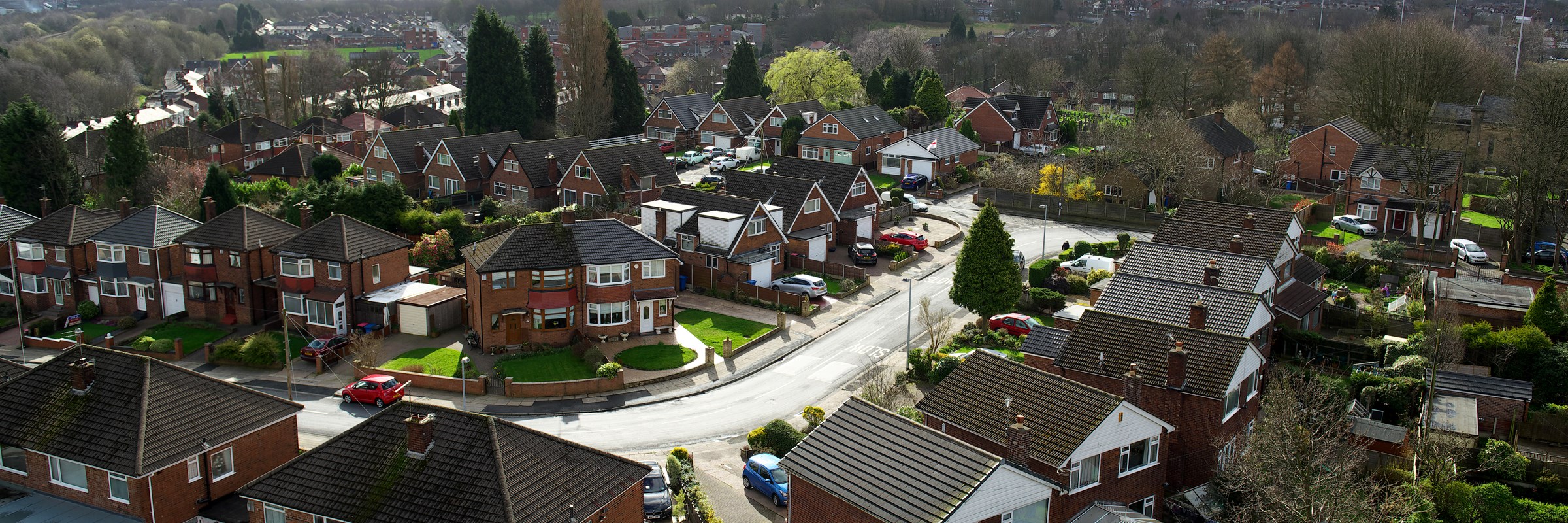
Detailed public responses prompt Leaders to agree to further engagement on Spatial Framework
GREATER Manchester’s Plan for Homes, Jobs and the Environment remains the best proposal for implementing future housing and infrastructure needs fairly across the city-region, say authorities. Leaders have also announced a timetable for a period of public engagement into the New Year with formal consultation scheduled for later in 2020.
The timescales allow for a period of deeper engagement with local communities and other stakeholders in light of the number of detailed and considered public responses received during consultation earlier this year.
The Plan, otherwise known as the Spatial Framework (GMSF), lays the foundations for proposals to deliver housing in Greater Manchester, growing the local economy and creating jobs, protecting the environment and delivering integrated transport to ensure the city-region continues to develop and thrive.
Development also features heavily as part of Greater Manchester’s ambitious environmental plans, with the recently-published Housing Strategy and the 5 Year Environment Plan committing every new build in the city-region to being zero carbon by 2028 and the entire city-region to be carbon neutral by 2038, 12 years ahead of the national target.
Initially published in 2016, a redrafted second GMSF proposal was followed by a period of public consultation which closed in March of this year. The total number of public responses – roughly 17,500 respondents submitting in excess of 60,000 separate comments – is a significantly lower figure than those supplied during the 2017 consultation period which followed the initial draft’s publication.
Nonetheless, the renewed public engagement with the redrafted Plan has demonstrated to authorities the real concerns that still exist in many Greater Manchester communities. To properly engage with residents’ issues and suggestions, Leaders intend to take time to carefully examine the feedback and work to implement any proposed changes in a revised third draft of the proposals.
A timetable has been developed for another period of public engagement into the New Year with publication of a new draft and subsequent further formal public consultation scheduled for summer 2020.
Paul Dennett, GMCA Lead on Housing, Homelessness and Infrastructure, said: “The people of Greater Manchester have provided invaluable insight and feedback and I want to thank them for engaging in this important process on our Plan for Homes, Jobs and the Environment. Having a clear plan is vital if we are to avoid a future where developers get the pick of the prime sites across Greater Manchester with no joined-up strategy to combat the possibility.
“I am confident the second, redrafted Spatial Framework was a significant improvement on the first, with proposals for building on Green Belt reduced by more than 50 per cent. However, from the large number of responses we’ve received there obviously remain real concerns in many communities. We received 27,000 responses to the first draft and fewer than 18,000 this time but it remains important that we consider all feedback properly and factor it into the next redraft.
“When the revised proposals are presented for a further round of consultation next summer they will better represent what we all want – a comprehensive proposal for the homes, jobs and supporting environment we all need now and in the future.”
The planned engagement work will include ongoing and productive discussions with local communities and a wide variety of voluntary, community and social enterprise (VCSE) organisations, Green Belt campaign groups and developers, with more work being undertaken to develop transport proposals, including site investigations and viability assessments.
Commitment has already been made to engage with community groups, the voluntary and community sector and the development industry on the development of the evidence base and workshop sessions will be held over the autumn and early in the New Year to shape the studies and share the methodologies.
Tens of thousands of public comments submitted to the most recent round of consultation will be published at the start of October – the public’s comments published on GMconsult.org will ensure transparency and inform the drafting of the next version of the plan.
Greater Manchester’s ambition is to build more homes and prioritise brownfield sites for development, often within our town centres – support is now needed to make this approach more viable.
The Mayor of Greater Manchester’s existing Town Centre Challenge aims to deliver higher density mixed and affordable housing in specific town centres across the city-region.
Now the GMCA intends to call on Government to back its proposals to boost our proud towns. The Prime Minister recently announced his government’s approach to renewing towns: liveability, connectivity, culture and powers. A number of Greater Manchester’s urban areas have benefited from the newly-announced Future High Streets Fund and the Towns Fund – the hope is that these and future commitments can support the drive to have our town centres form a central part of any future GMSF proposal.
In June the new Greater Manchester Housing Strategy committed to 50,000 additional truly affordable homes by 2037, 30,000 of which will be social rent, by working in partnership with housing providers, local authorities, Homes England and government to maximise investment in new social housing.
Article Published: 20/09/2019 15:52 PM



